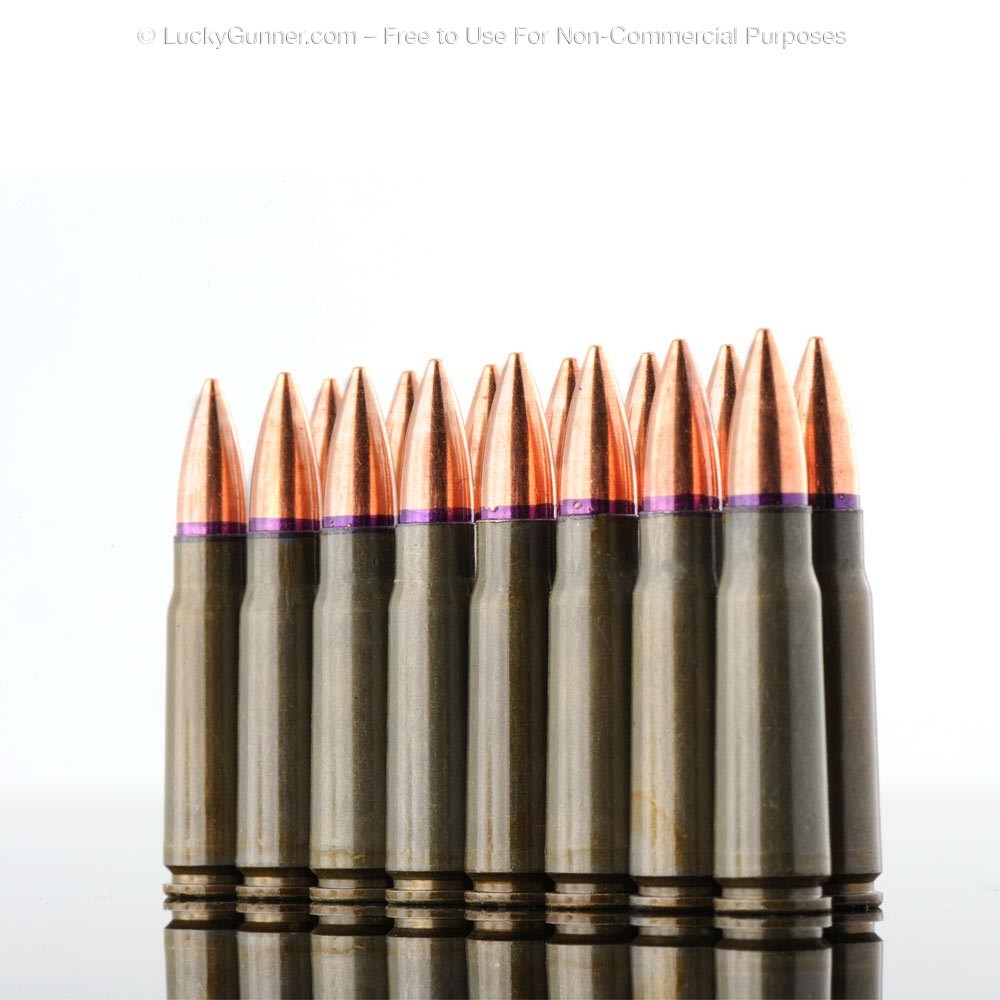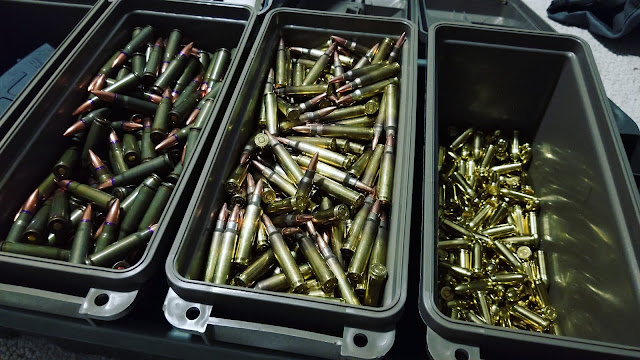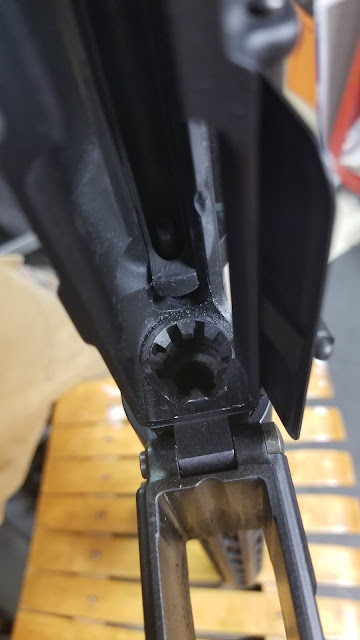Ammo: Brass or Steel Cased?
Introduction:
Firearms are not a cheap hobby. They get even less cheap if you actually shoot them. Especially nowadays, ammo is the largest recurring expense when it comes to firearms. Lots of people solve this problem by using cheap, steel-cased ammo instead of traditional brass. This has lead to a whole slew of myths and rumors regarding the quality of steel cased ammo. Some shooters even choose to avoid the stuff all together for fear of damaging their guns. I'm going to try and go into some of the myths and some of the truths around steel cased ammo vs. brass cased. There is a significant difference between the two, and there are definite advantages and disadvantages to both, so lets get into it.
Details:
The first question that needs to be answered is, why use brass in the first place? There are other materials, such as steel that can do the job for much cheaper while not adding significant weight and resisting corrosion better. The answer comes from something called obturation.
 |
| Source |
A firearm functions via expanding gasses propelling a projectile down a barrel. Firearms do this by burning black powder or smokeless powder to rapidly create this gas. Obturation literally means to block something. In the realm of firearms, this something is the expanding gases. Without any sort of obturator, you end up with something like the photo above. Not only do gasses expel out the bore, but they also launch up through the flash hole near the shooter's face. An obturator is any mechanical device that blocks these rearward gasses.
Brass is known as a very malleable metal, meaning that it can easily be formed into a shape. This, combined with its price and decent corrosion resistance, make it a great choice for ammunition. When a brass cartridge is loaded into a chamber, there is a small amount of space between the walls of the case and the walls of the chamber. Upon firing, the case actually stretches and expands against the walls of the chamber. This forms an air-tight seal, preventing gasses from traveling rearward toward the shooter. Because of brass's properties, the case acts an an obturator during the firing process.
You can probably see where I'm going with this. Steel does not have these same properties, and does not do as good of a job as acting as an obturator. Although all metals expand when heated under such conditions, steel does not form as good of a seal against the chamber walls as brass. This means that gasses get around the case upon firing. Realistically, however, this does not impede the function of the gun at all. The only possibly noticeable difference is that the inside of the gun will likely get a bit dirtier than normal.
 |
| Source |
A lack of obturation is not the only downside to steel though. Steel is also not nearly as lubricious as brass. This means that in order for safe, reliable to extraction to occur, steel-cased ammo typically needs to be coated in some sort of lacquer or polymer coating. Without this, or without a good enough coating of it, steel cased ammunition can get stuck in firearm chambers or cause an excess of wear on extractors. This really is not a big issue though. Pretty much every AK-type rifle in use today gets a steady diet of steel cased ammo without major issues.
AR variants can vary more. Because of the tighter tolerances of the platform, along with the fact that they were designed with brass-cased ammo in mind, AR's can occasionally have issues with steel-cased ammo depending on the rifle.
Conclusion:
All in all, steel cased ammo provides a cheap, viable source of training ammo. The case material doesn't matter as much as the quality of manufacture that you get from an ammo plant the produces most steel cased ammo. You're more likely to have a malfunction as a result of a bad primer or a light strike than you are a stuck case or broken extractor. There really is no replacement for brass cased ammo as of yet, but neither brass or steel are going to damage your gun if you run it. Especially nowadays, if you can find any ammo at all at a good price, brass or steel, buy it up. Any ammo is better than having no ammo, so although the reliability of some steel-cased ammo is in question, it's still going to be better than nothing.


Comments
Post a Comment